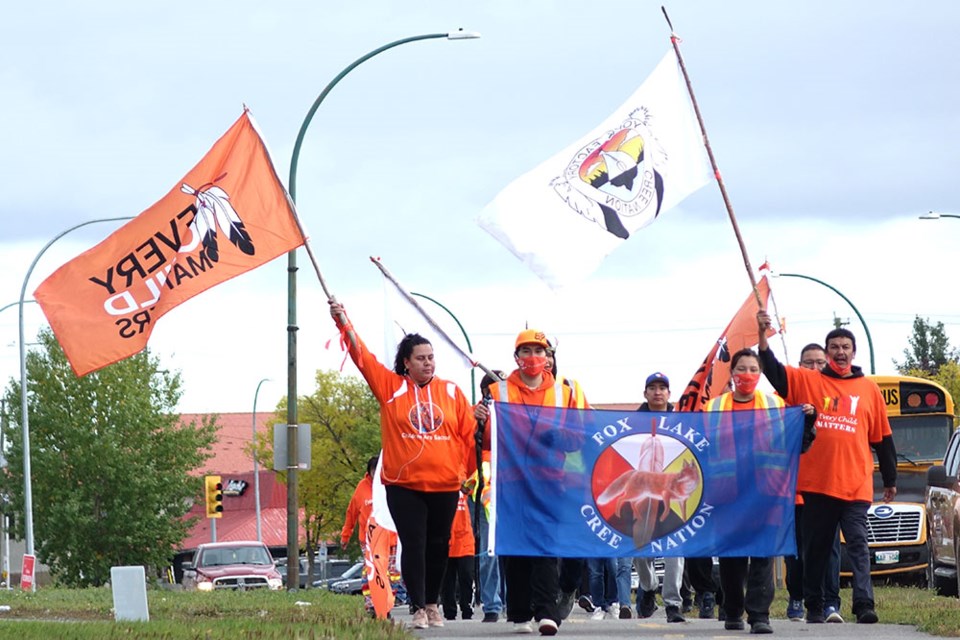A long journey by members of the Fox Lake Cree Nation has community members walking more than 1,000 kilometres from Northern Manitoba to Winnipeg, to bring attention to the tragic legacy of residential schools and the need for more healing and addictions supports in the north.
On Sept. 18, Fox Lake Cree Nation councillor Sophie Lockhart, who was taken from her family as a child and forced into a residential school, joined about 20 other walkers as they began their trek south from Fox Lake to Winnipeg, a journey of more than 1,000 kilometres.
More walkers are expected to join the group as they continue to Winnipeg, and Lockhart said that as a residential school survivor, she hopes the walk will continue to bring attention to the legacy of residential schools in Canada, but also how that legacy has created lasting impacts on Indigenous communities.
Over the course of the more than 100 years that residential schools ran in Canada, it is estimated that around 150,000 Indigenous children were forcibly placed in schools across the country and recently the issue of unmarked graves being found near former residential schools in Canada has brought a greater focus to the legacy and the horrors of those schools.
“As a national spotlight was shone on graves of children at residential schools, I found myself always thinking about those children that didn’t make it home,” Lockhart said in a press release.
“We need to honour those little kids and the survivors. I ran away from residential school three times, and now I am walking to honour those that can’t because they never returned.”
Lockhart said there also needs to be more attention and more scrutiny on the institutions that resulted in the implementation of Canada’s residential school system.
“It’s important that we keep the national conversation going. We need to keep holding Canada and the churches accountable,” she said.
The walkers also hope to bring attention to the need for increased addictions and healing services in Northern Manitoba, as Lockhart said much of the pain seen in many Indigenous families and communities over decades has stemmed from the residential school system and has led to ongoing issues like addictions and poverty.
“Residential school survivors and their families continue to struggle with the lasting intergenerational impacts of being torn from their families, culture, and communities,” Lockhart said.
“Some of our people are still lost in addictions, scared to deal with their issues and afraid of the outcome of reopening old wounds.
“They need options close to home in order to work through the horror of their experience, learn healthy ways to cope and come to a place of healing that breaks the cycle, and starts to rebuild family and culture.”
The walkers are expected to arrive in Winnipeg at the end of the month and plan to gather at the Manitoba legislative building on Sept. 30, coinciding with Orange Shirt Day, and the new federal National Day for Truth and Reconciliation.
— Dave Baxter is a Local Journalism Initiative reporter who works out of the Winnipeg Sun. The Local Journalism Initiative is funded by the government of Canada.




